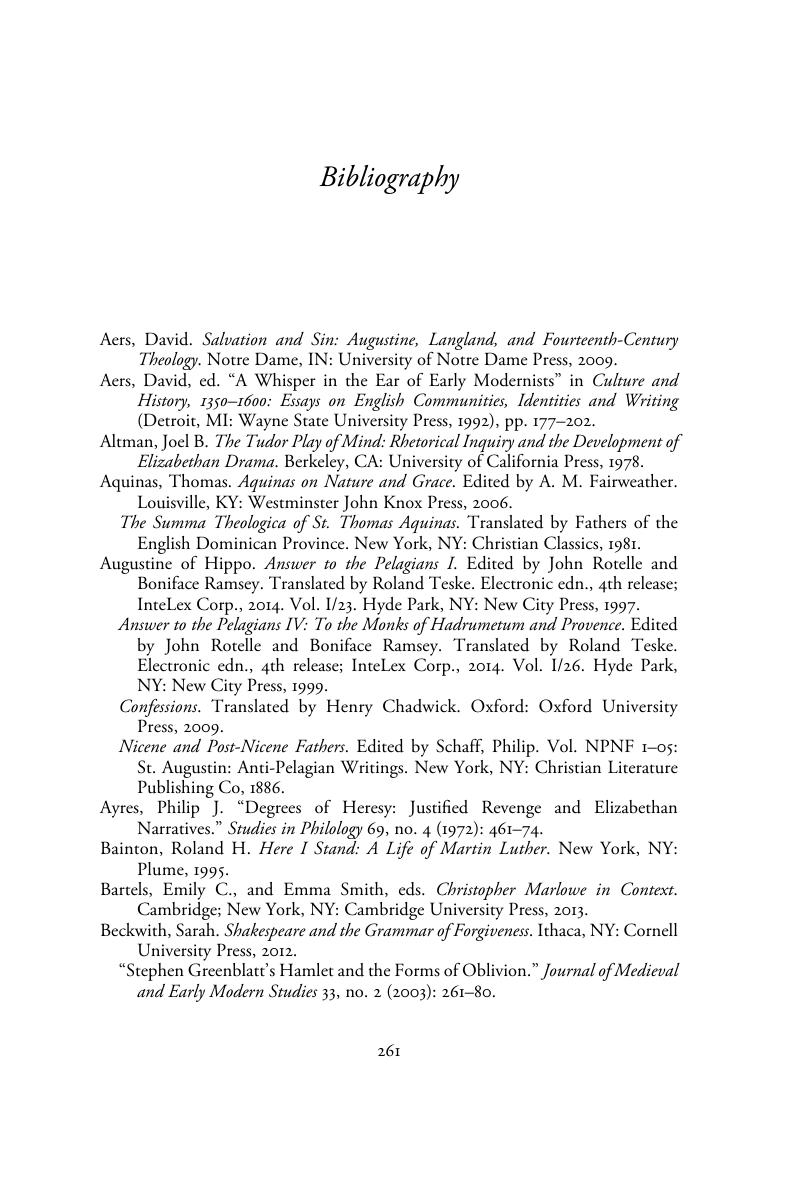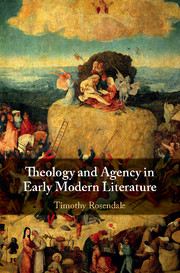Book contents
- Theology and Agency in Early Modern Literature
- Theology and Agency in Early Modern Literature
- Copyright page
- Dedication
- Epigraph
- Contents
- Acknowledgements
- Introduction
- Chapter 1 A History of Christian Agency
- Chapter 2 Will: Marlowe
- Chapter 3 Action: Revenge Tragedy
- Chapter 4 Struggle: Donne
- Chapter 5 Blame: Milton
- Afterword
- Notes
- Bibliography
- Index
- References
Bibliography
Published online by Cambridge University Press: 25 May 2018
- Theology and Agency in Early Modern Literature
- Theology and Agency in Early Modern Literature
- Copyright page
- Dedication
- Epigraph
- Contents
- Acknowledgements
- Introduction
- Chapter 1 A History of Christian Agency
- Chapter 2 Will: Marlowe
- Chapter 3 Action: Revenge Tragedy
- Chapter 4 Struggle: Donne
- Chapter 5 Blame: Milton
- Afterword
- Notes
- Bibliography
- Index
- References
Summary

- Type
- Chapter
- Information
- Theology and Agency in Early Modern Literature , pp. 261 - 273Publisher: Cambridge University PressPrint publication year: 2018

